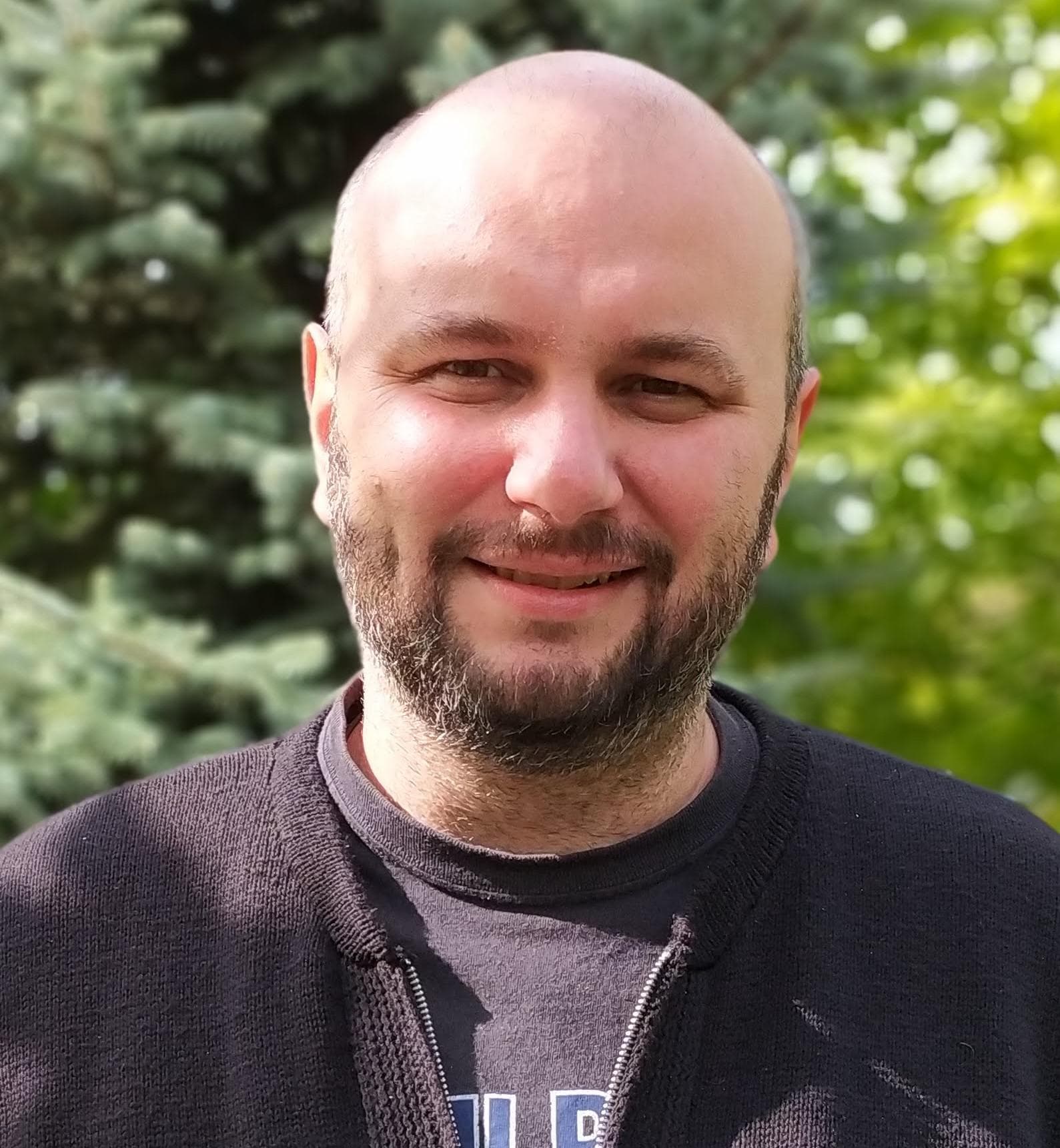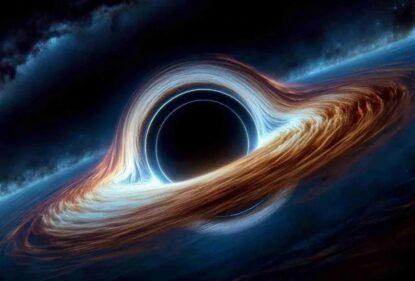The eve of September 1 is a great occasion to think about the role of knowledge in our lives. Their official celebration has been a chronological mark of the start of the educational process in schools and universities for many years. At the same time, knowledge as an object is not included in today’s agenda.

Crisis of attitude to knowledge
The starting point in reasoning of this kind can be the fact that a reasonable person has always been interested in how the world works. It is obvious that the infinite variety of natural phenomena is described by a certain finite set of primary entities and the relationships between them. And the result of studying (observing/contemplating) these entities is knowledge — the building material from which we create a picture of the world.
The modern discourse on knowledge is artificially brought to reflections around “utility”: the opinion is actively cultivated that those skills that bring benefits, that is, profit, are important. “Pragmatism takes over the world,” says Ihor Khanin, pointing out that not everything should be measured by relevance, money, efficiency, profitability, and we do not notice really important things. The Italian philosopher Nuccio Ordine, in his manifesto “The Usefulness of the Useless,” asserts that “knowledge that is considered useless (not profitable) is fundamental to humanity”. That is, we gradually stop noticing the important things unnoticed by ourselves, we go blind.
Nicolaus Copernicus, Isaac Newton, Dmitri Mendeleev, James Maxwell, Albert Einstein, Niels Bohr, Volodymyr Vernadsky and others were not guided by pragmatism — from the point of view of contemporaries, the achievements of these scientists were absolutely useless, they did not make a profit and did not solve urgent business problems. But their large-scale discoveries, contributions to the treasury of world science have made it possible to do much more. They broke sacred theories, dogmas, stereotypes, and changed the borders of states. Thus, knowledge and science have acquired the character of a global phenomenon: they cannot be bottled up somewhere in one place and not manifest themselves in another.
Vernadsky’s genius was able to point out this phenomenon — the noosphere as the highest degree of organization of the human mind. The accumulation of knowledge provoked cultural and ideological transformations, set whole continents in motion. The Renaissance, Modern times, industrial revolutions are milestones caused primarily by education and progress of science. Each discovery allowed us to make a breakthrough in our understanding of the world order. We could realize, cognize and describe what we observed. The picture of the world was rapidly expanding, there was less and less space for the “incomprehensible”, “supernatural”, our scientific horizons reached the scale of the macro- and micro-worlds, the instruments of humanity today are able to explore the Universe in the range from 10-32 to 1026 m. And all this is thanks to the so-called useless knowledge. In this vein, the crisis of our attitude to knowledge becomes obvious: in the collective consciousness, this concept is reduced to the need to receive formal education, experience, and practice, but at the same time, the basic mission of knowledge as a global tool for the harmonious development of humanity and nature is leveled and blurred.
The crisis of attitude to knowledge, obviously, lies in the distortion of the value system, which does not fit pure knowledge and unconditional science. The coordinate system, in which both “useful” and “unnecessary” knowledge will be equivalent, has the right cultural guidelines, it will focus not only on pragmatism (as a vital necessity), but also on our attitude to the future of nature and man.
Knowledge and information society
A feature of our time is the massive use of digital technologies, as a result of which we observe the transformation of public relations and the formation of an information society, which is characterized by a shift in the basic axis of interaction from “human-nature” and “human-human” to “human-information”. Modern data processing tools allow the use of information models as analogues of elements of the real world. Digitization as a reflection of objective reality becomes an indirect subject of research. Thus, the age-old practice of direct contact between the object and the researcher was destroyed.
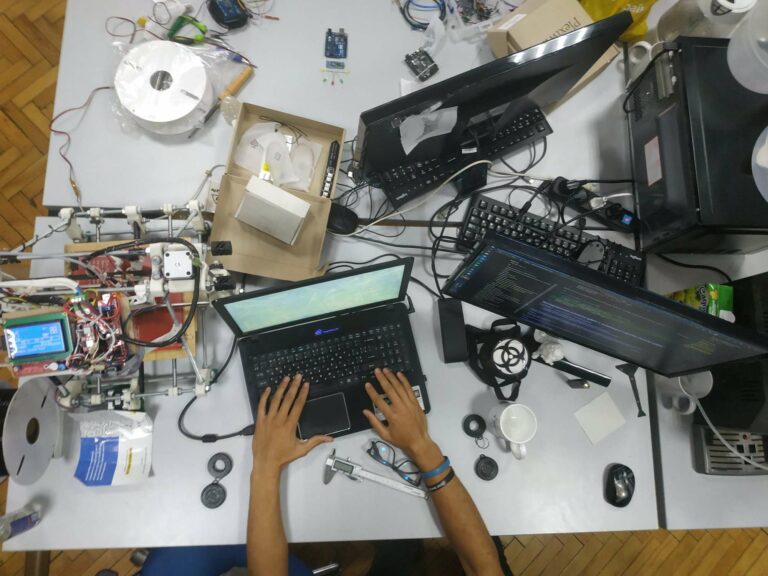
Max Polyakov and Ihor Khanin note that “the emergence of information and communication technologies (ICT) has deformed information practices, breaking the unity and harmony between the processing and application of data that have been developing for centuries”.
An important feature of the information society is the fact that knowledge is available to absolutely everyone — they are at a distance of one search query.
At the beginning of the XX century Vernadsky noted the growth of the dynamics of scientific creativity, in the middle of the century von Neumann predicted the onset of a time when human knowledge would no longer keep up with the development of technology, and at the beginning of the XXI century Kurzweil popularized the model of technological singularity — the moment in time after which accumulated knowledge would cease to be accessible to the human mind.
It would seem that the presence of “accelerators” like ICT, the increase in the amount of accumulated knowledge and their availability should ensure the acceleration of scientific progress, but we do not observe any clear breakthroughs in the worldview. That is, the amount of knowledge is growing, but this does not lead to steps forward — we are marking time, the “information bubble” is increasing. There is a kind of inflation pattern, when a conditional unit of knowledge loses its significance and value over time. The inflation of knowledge as a phenomenon at the individual level manifests itself in the loss of relevance of what is acquired, what was considered a valuable skill/practice yesterday is useless today. It should be noted that this phenomenon has a positive feature, namely, the formation of an external request for constant updating of individual knowledge (long life learning). But on a global scale, we’re just starting to run faster on the spot. Georgian philosopher Merab Mamardashvili suggests a way out of the situation in the “destruction-reconstruction of understanding” — a kind of revision of the ontological foundations of our perception of the world. And this is a very complicated exercise! In this context, the role of an individual is significantly increasing, since revision, rethinking, restructuring, and reformation clearly require not only outstanding moral and volitional qualities, but also the ability to resist sacralized dogmas and stereotypes both in science and in society, culture, and business.
Noosphere Engineering School
Engineering should be understood in a broad sense as a conscious activity aimed at achieving concrete results. Engineering school is not just a place of project activity for young people, it is an organized network for knowledge exchange, a platform for scientific and engineering creativity.
Today, there is an increasing need to search for new formats for obtaining adequate knowledge. Inertia and sluggishness in both the traditional education system and academic science do not contribute to an effective solution to this problem. The synergy of business, science, and education within the Engineering School forms the necessary bridge between the practical and theoretical sides of the matter and allows you to transform scientific knowledge into an applied plane.


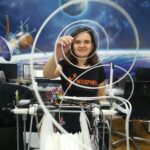
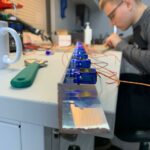

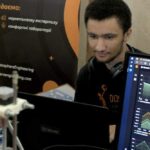
Our most important task is to organize project activities for students. And here we are talking about projectus, which in Latin means “thrown forward”; in this context, project activity is a school of life where young people can express themselves. This approach, in our opinion, is the only correct one for finding and supporting rockstars who are ready and able to show their passionarity* and are called upon to become the conductors of the transformations mentioned above.
In addition, the Noosphere Engineering School is:
— the territory of creative freedom, freedom of thought — we are convinced that only free individuals are able to transform the world, unite and team up around an idea;
— the point of growth of innovations that can change the world;
— a platform for the popularization of innovative practice, science, knowledge and engineering.
The activity of the Noosphere Engineering School is related to knowledge. We value them, respect them and are ready to multiply them.
Passionarity (from the French “passionner” — “to possess, captivate, ignite passion”) is an irresistible inner desire for activities aimed at changing one’s life, environment, and status quo.
Follow us on Twitter to get the most interesting space news in time
https://twitter.com/ust_magazine

